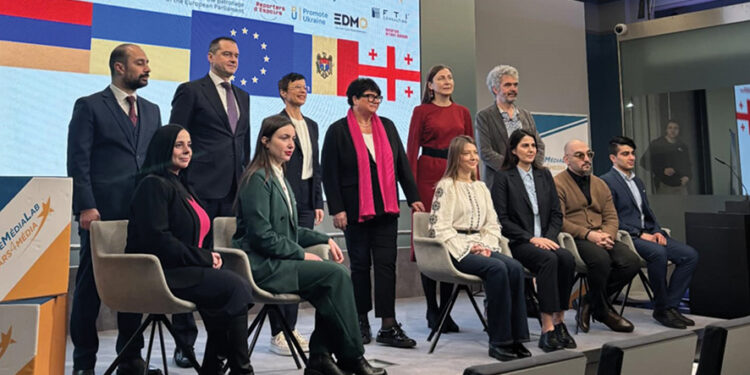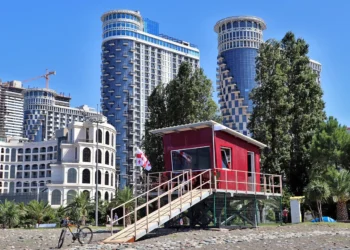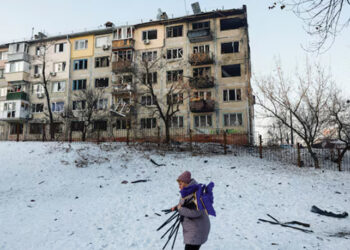Brussels, long a hub for European diplomacy, has recently become home to a new initiative with a different mission: supporting independent journalism in Eastern Europe and the South Caucasus. The Maison du Medialab project, launched in collaboration with Stars4Media, aims to bring journalists from local media in Eastern Partnership countries to Brussels, with the goal of helping them become permanent correspondents and, in turn, bring the EU’s message back home.
The initiative comes right on time. Journalists in these countries often face immense challenges, including political pressure, disinformation, and limited access to resources—not to mention the ongoing war in Ukraine. Maison du Medialab seeks to counter these obstacles by providing participants with access to EU institutions and encouraging cross-border collaboration.
While the program focuses on journalism’s grassroots challenges, its implications are deeply geopolitical. The battle for narratives in Eastern Europe has never been more intense, as the war in Ukraine and political crises in Georgia and Moldova continue to expose the fragility of democracies in the region.
Medialab positions itself as a bulwark against the erosion of media freedoms, offering a platform to elevate stories that are often overshadowed by larger global crises, ensuring that the voices of these countries are heard in Brussels, while also ensuring Brussels’ message is safely delivered back to their respective countries.
The inauguration conference was attended by high-ranking officials from European structures, representatives of prominent media outlets in Brussels, and local non-governmental organizations.

Marta Kos, European Commissioner for Enlargement and a key speaker at the opening conference, emphasized the project’s importance: “Combatting disinformation together is one of our most pressing issues. As a former journalist, I know how hard it is to counter falsehoods with facts. This is where journalists are indispensable. You have the power to cut through the noise, establish the facts, and translate the complexities of our Union into stories.”
The initial wave includes six journalists—two each from Ukraine, Moldova, and Georgia—including RFE/RL and GEORGIA TODAY’s very own Vazha Tavberidze. According to the project’s founder, Christophe Leclercq, Armenian journalists are also set to join in the next wave. “By the end of the project, we aim to at least triple the number of Eastern Partnership journalists permanently working in Brussels,” he said.
The program is funded by individual donations, philanthropic contributions, and sponsors, but it may become part of an EU-funded program in the future.
By Team GT














